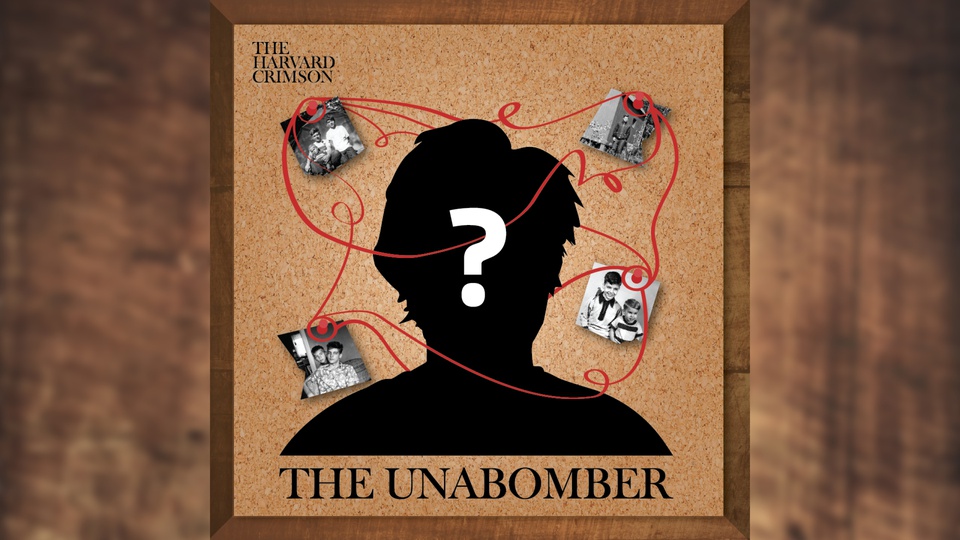{shortcode-50252f81125833ac5574ea5b13668fae087318a6}
From The Harvard Crimson’s Fifteen Minutes Magazine, writers Jem K. Williams and Maya M. F. Wilson take a closer look at the public image of the Unabomber. The serial bomber, caught in the 1990s, continues to remain a fixture in the imaginations of countless podcast hosts, documentary makers, and journalists — why? As they break down the common stories used to explain his path to violence and examine the aftershocks of the publication of his manifesto, they’ll explore the dark spaces of the internet, the true crime industry, and the responsibility of the media as a whole.
The Stories We Tell
{shortcode-21aa8d6926d5e0088032e4360c9211c7157b39c7}
“What do you get when you mix Harvard, homemade bombs, and a deep-seated fear of technological advancement?” In this episode, JKW and MMFW introduce Ted Kaczynski, the Unabomber. They ask why, several decades later, we still talk about him. More importantly, they ask how we can talk about him responsibly and with integrity.
See the episode page here.
I. The 'Unknowable'
{shortcode-c33a0ad73f5131a6d0d67effa77b3eb85ae0c3c7}
In this episode, JKW and MMFW start from the beginning talking to Ted’s brother, David, and his neighbor, Jamie Gehring, to dive into the Unabomber’s many “origin stories.” Some point to his participation in a psychological study at Harvard as the reason for his crimes — some point earlier, to when he was hospitalized at just nine months old. Some point to his fraught relationship with his gender. To this, Eric Benson, host of the “Project Unabomb” podcast says: “You want to find the reason that this really bad thing happened. And to me, it is ultimately kind of unknowable.”
See the episode page here.
II. Catch and Release
{shortcode-141fb2e7369789b5855eb15702aac4cf28c7caf0}
In Sept. 1995, Ted Kaczynski published his manifesto in the Washington Post. JKW and MMFW talk to Donald Graham, the publisher of the Post at the time, to learn about how the Post came to its decision to publish the Manifesto. They interview Jake Hanrahan, terrorism journalist, about how the Manifesto has been adopted and adapted by far-right extremists and trolls.
See the episode page here.
III. One Person's Revolutionary
{shortcode-6052cb350c6a3288b0b0dd997dde1ba604a1bddb}
In this episode, JKW and MMFW interview extremist experts Graham Macklin and Joshua Farrell-Molloy to talk about how the Unabomber has captured the attention of eco-fascists. They speak with Mick Grogan, producer of a Netflix documentary about the Unabomber, to understand how Ted has also captured media attention. Gehring discusses the mechanics of the true crime industry. Bryan Denson, who wrote a book about the Unabomber, speculates on the characteristics that create public intrigue around Ted, even now.
See the episode page here.
IV. Picking Up the Pieces
{shortcode-366e184ebaad91ca43dadcc4dce5508f17095238}
What is the role of the media in all of this? That is, what is our role? MMFW and JKW finish up the series by talking about the benefits and the harms of Ted’s media coverage, and they reflect on how we force narratives unto people, and how the real stories will inevitably elude us.
See the episode page here.
— Associate Magazine Editor Jem K. Williams can be reached at jem.williams@thecrimson.com. Follow her on Twitter @jemkwilliams.
— Associate Magazine Editor Maya M. F. Wilson can be reached at maya.wilson@thecrimson.com.


